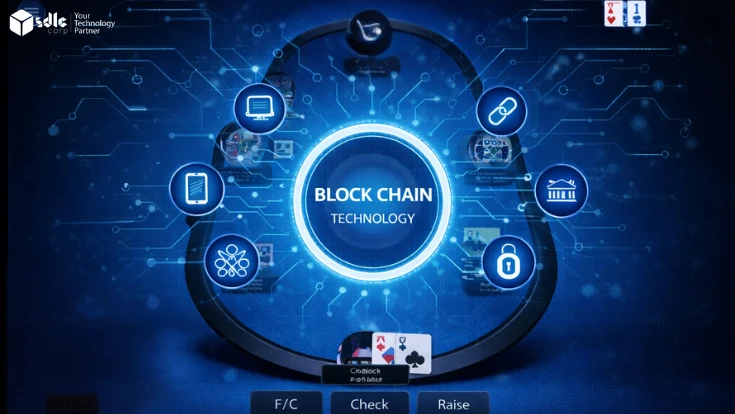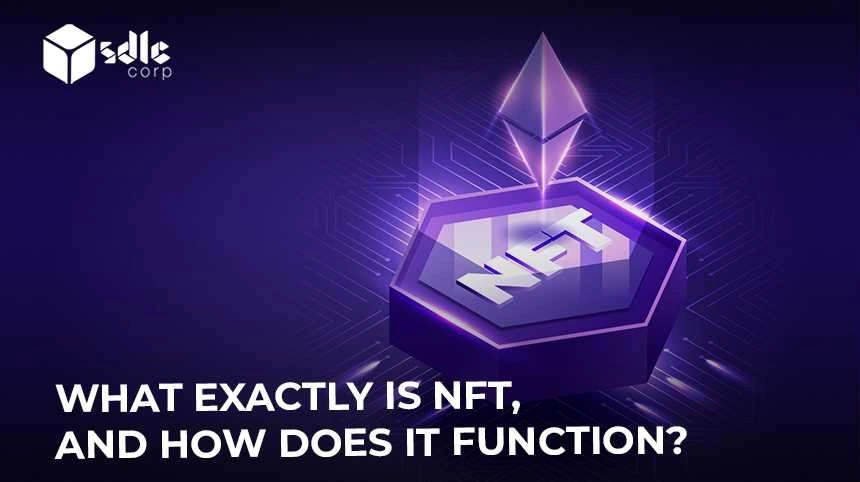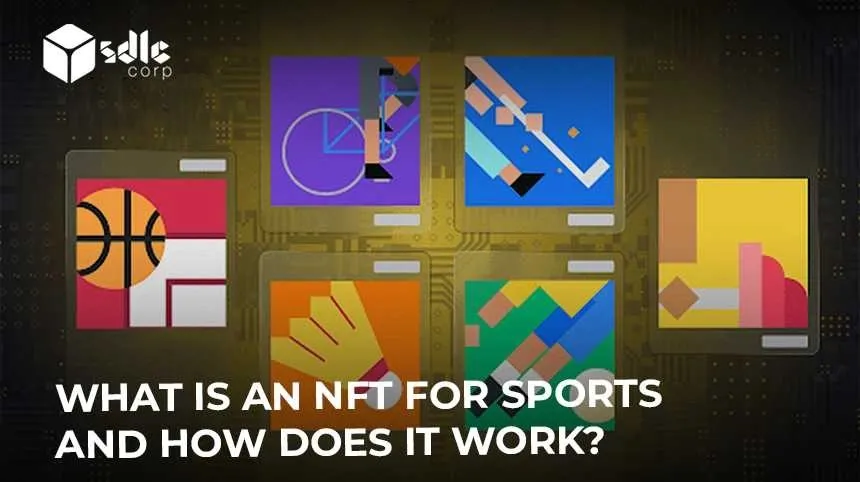Blockchain and NFTs in Real Estate Industry: The most valuable asset class in the world is comprised of real estate.
According to industrial businesses and real estate experts, the age of blockchain technology is having a big impact on both retail and industrial property transactions.
It is speeding up payments and making it easier to get real estate capital and financing options.
How Can Real Estate Benefit from Blockchain?
When it comes to financing, commercial real estate is a massive asset class that accounts for a sizable portion of all transactions that take place around the world.
According to data conducted by MSCI, the value of professionally managed real estate finance markets throughout the world increased from $7.5 trillion in 2016 to $8.5 trillion in 2017.
The current real estate market, on the other hand, is splintered into a number of different networks that are not prejudiced, and transactions are often complicated and unclear.
With the assistance of the Ethereum blockchain, it may be possible to get a better understanding of these potential financial benefits.
1. Blockchain-based tokenization of real estate
2. Efficient procedures for the business’s fundamental activities
3. Less expensive operations are possible thanks to the automation of routine tasks.
4. Obtain access to global asset distribution.
5. A wider range of potential investors due to ownership fragmentation
6. Gain access to possibilities in the secondary market
7. Greater openness and efficiency in making investment decisions and managing one’s portfolio may be achieved via easier access to relevant data.
Tokenization, also known as the virtual securitization of real estate holdings, is one of the most exciting applications for Ethereum’s use in the commercial world. This application is also known as “tokenization.”
Real-world properties, such as real estate, real estate budgets, revenue streams, governance rights, and other types of assets, may sometimes be reflected in digital assets.
Once these assets have been turned into tokens, they can be broken up into smaller pieces, made available to more traders, and used to bring in more money.
After the asset has been turned into a token, Ethereum’s programmable blockchain makes it possible to digitalize the asset’s transactions and processes in a safe and legal way. This includes the issuance, trading, and management of the asset’s lifecycle.
Explore our other insights!

Role of Blockchain in Poker Game
Blockchain in Poker Game depends on trust around fairness, balances, and payouts. Therefore, players must believe cards are

What Exactly is NFT, And How Does It Function?
Imagine purchasing a digital painting on the internet at a reasonable price and receiving a unique digital token

What is an NFT for Sports and How Does It Work?
The emergence of Non-Fungible Tokens (NFTs) has revolutionized several industries, with the sports sector being one of the
NFT Real Estate
We’ve previously covered the basics of NFT (non-fungible) tokens and how they function across various sectors in a prior blog post. Let’s test out NFT in the field of real estate.
A piece of New Frontiers in Real Estate (NFT) property (What is Real Estate NFT and What Cost Will Come in This) is a piece of programmable land in a simulated environment that users’ 3D avatars can move around and explore.
Users have to get NFTs that are tied to specific pieces of land in order to prove that they are the unique owners of real estate in the metaverse.
The assignment details the kinds of activities that are authorized on the site. Customers of Decentraland have the ability to construct their very own plots of land, take part in a variety of activities, communicate with other users, and do a great deal more.

Applications of NFT in Real Estate
The restrictions on your use of NFT real estate are set by the assignment from which you purchased the property. We’ve highlighted some of the metaverse’s key uses for NFT properties below.
Explore our other insights!

Role of Blockchain in Poker Game
Blockchain in Poker Game depends on trust around fairness, balances, and payouts. Therefore, players must believe cards are

What Exactly is NFT, And How Does It Function?
Imagine purchasing a digital painting on the internet at a reasonable price and receiving a unique digital token

What is an NFT for Sports and How Does It Work?
The emergence of Non-Fungible Tokens (NFTs) has revolutionized several industries, with the sports sector being one of the
Commercial ads
In order for creators to make money off of their work in the metaverse, they may either sell or license their NFTs to other users for a price.
Brands can sell their products in virtual environments, talk to customers in a more personal way, and organize digital product launches all at the same time.
Socializing
While the owners of certain NFT properties could be interested in turning their properties into investments, others might be constrained from doing so by pressing financial concerns.
People who own property in the metaverse have access to a location in the digital realm where they can congregate with their friends and other people who share similar interests in a setting where they can use their digital assets to take part in online games and have meaningful exchanges with other people.
NFT Property Marketplace
As technology has improved, more and more people are able to work remotely and interact with their colleagues online. Properties that are available through NFT could be used as a virtual office or a hub to offer online services.
How will NFTs Impact Real Estate?
Boost the Safety and Visibility of your Company's Operations
If you want to have the identifying deed for your home printed on paper, you should be aware that it is more susceptible to being misplaced, altered, or forged.
If physical assets were turned into tokens, buying and selling real estate might be better for the environment and easier for both buyers and sellers.
Because NFTs are kept on a distributed ledger, we can all check the records of who owns them and the transactions that have happened to make sure they are real.
In addition, due to the immutability of the blockchain’s ledgers, minting your name deed or another record as an NFT may considerably reduce the chance of dishonest parties misrepresenting your property files. This is because of the immutability of the ledgers.
Unlock Real Estate's Future: Explore Blockchain and NFTs Now!

A share of Ownership
When talking about the NFT on a global scale, the word “fractionalization” often refers to the process of splitting up the costs of a virtual artwork or collection as well as the ownership of that artwork or collection.
Fractionalized non-financial transfers in the real world make it possible for several people to share the costs and ownership of a single item, such as a piece of real estate.
In addition to this, providing property ownership in the form of a fractional non-financial asset (NFA) may make it simpler for first-time investors to test the waters of the market.
Capitalization of Real Estate
Asset value may be impacted by liquidity issues, such as the difficulty in finding a buyer for a particular item.
On the other hand, because blockchain technology is not centralized, it could make the real estate market more competitive by bringing in buyers from all over the world.
Conclusion
The thought of spending money on cyberspace may also be difficult for many to wrap their heads around.
First, you need to investigate the meteoric rise of digital collectibles, the metaverse, and other NFT use cases to get a feel for the potential of NFT real estate.
The use of NFTs has simplified, increased transparency, and reduced environmental impact in the real estate industry.
As blockchain technology improves, it seems likely that there will be more and more metaverse homes.
FAQ’s
1. Can we use NFT for property transactions?
Property in the NFT may be purchased on a metaverse platform. Although NFT property may be put to a number of different uses, it is most often used as a place for people to congregate for business and leisure activities. Applications, projects, and demand may all have a role in how much NFT real estate costs.
2. Do you think blockchain technology might be used in the property industry?
Adding smart contracts to blockchain platforms may aid in the tokenization of real estate and trades like cryptocurrencies. Young people raised with blockchain technology are revolutionizing the real estate industry by creating novel approaches to doing business.
3. How will NFT affect real estate markets?
Because of the possibility of creating fractional ownership NFTs, it is possible to sell off a section of a property. The regular apartment income might be supplied to NFT owners as an incentive in addition to the appreciation of the real estate NFT when real-global expenditures grow.
4. Does the future of real estate lie in blockchain technology?
Due diligence processes relating to real estate may be sped up if each piece of land in the country had its own unique blockchain ID. The method might be used to create a tokenization system for real estate, which would allow for fractional ownership.



